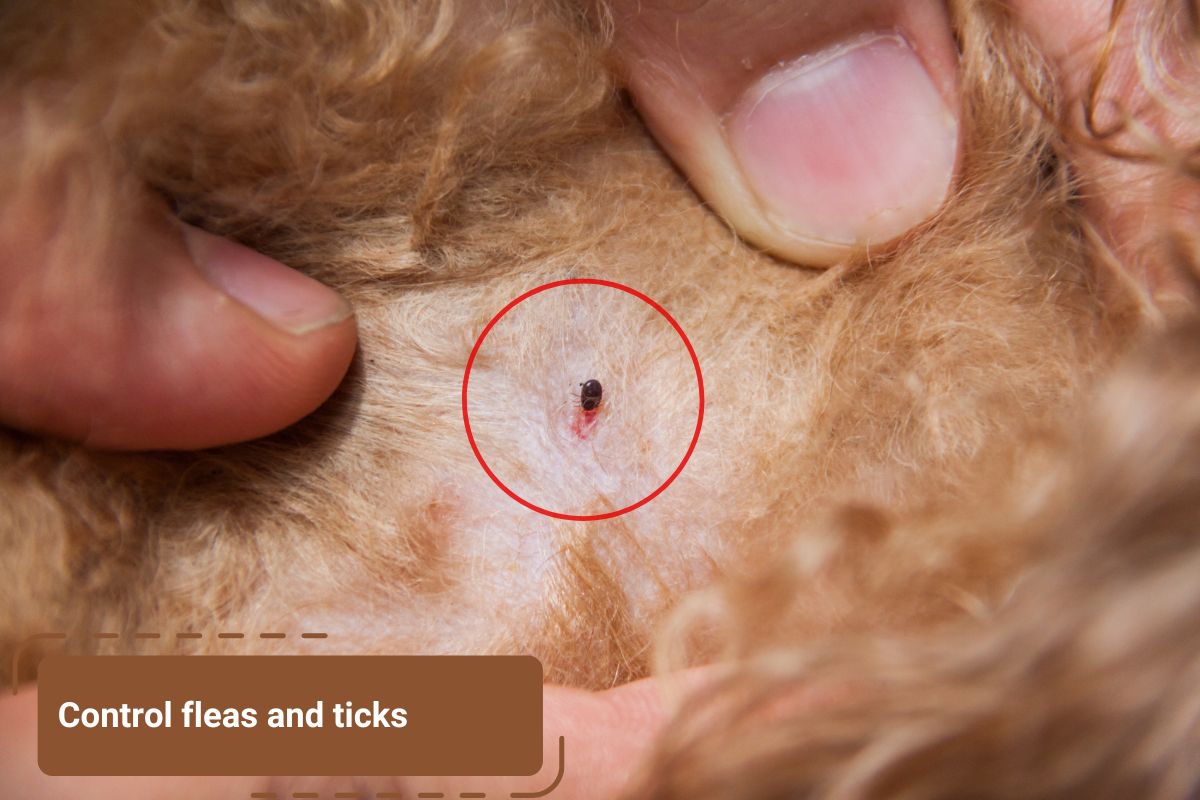More than just a beautiful appearance, your dog's skin protects their overall health. However, this layer of skin is very susceptible to many factors, from dermatitis to flea and tick infestations. Understanding skin protection measures for dogs is extremely necessary and should be done regularly and continuously
Identify skin problems in dogs
To adequately protect your pet's skin, you must first identify the common problems they may encounter.
- Dermatitis: Dermatitis in dogs can be caused by many different things, including allergies, infections, or changes in the weather. Symptoms include red, itchy, inflamed skin and frequent scratching.
- Fleas and ticks: Fleas and ticks are tiny parasites that can cause itching, skin irritation, and more severe problems such as dermatitis or secondary infections.
- Lice: Lice is also a parasite that can cause itching and irritation. They are often found in unclean environments and can cause damage to the skin.

Skin protection for dogs
Although skin problems are common in pets, taking serious precautions can help minimize their occurrence.
Maintain a balanced diet
Diet plays a vital role in maintaining the health of your dog's skin. The following nutrients are especially important in your pet's daily diet:
- Omega-3 and Omega-6 Fatty Acids: These essential fatty acids help maintain skin moisture and elasticity. They can be provided through fish oil, flaxseed, and chia seed oil.
- Vitamins A and E: Vitamin A helps regenerate skin and reduce inflammation, while Vitamin E is an antioxidant that helps protect skin from damage. Provide these vitamins through foods such as liver, carrots, and vegetable oils.
- Zinc and Biotin: Zinc aids in wound healing and reduces inflammation, while Biotin helps maintain healthy skin and coat. Food sources of Zinc and Biotin include meat, seafood, and egg yolks.
Proper skin care
- Bathing properly: Bathing your dog too often can strip the skin of its natural oils, causing dryness. Bathe your dog every 4-6 weeks, and use a shampoo appropriate for your dog's skin type.
- Grooming regularly: Brushing helps remove dirt and dandruff and stimulates blood circulation. Use a brush appropriate for your dog's coat type and brush at least once a week.
Flea and Tick Control
- Use anti-parasite products, such as flea and tick prevention products, such as flea drops or collars. These products help prevent parasites from entering and damaging your dog's skin.
- Clean the environment: Keep your dog's living area clean to reduce the risk of fleas and ticks. Dust, vacuum, and wash your dog's belongings regularly.

Detect Skin Problems Early
- Check your dog's skin regularly: Check your dog's skin at least once a week for early signs of dermatitis, fleas, ticks, or lice. Look for signs like redness, itching, or unusual spots.
- Visit the vet: If you notice any unusual signs on your dog's skin, take them to the vet for prompt diagnosis and treatment.

Use supporting food products
In addition to the above measures, you can refer to foods that are good for your pet's health. For example, ED-1 Complete Mixed Food for Dogs is a product specially designed to provide the nutrients necessary for your dog's skin and coat health. This product includes vitamins A, E, B2, Biotin, ... and especially Coix seeds to help maintain effective skin health.
Protecting your dog's skin from dermatitis, mites, and lice is vital to ensure their overall health. By maintaining a balanced diet, proper skin care, controlling fleas and ticks, and detecting skin problems early, you can help your dog maintain healthy and happy skin. Don't forget to use quality supporting products to enhance skin care effectiveness and buy from genuine units, products with clear origins "made in Japan" to ensure quality.


 Vietnamese
Vietnamese  日本語
日本語  English
English 





